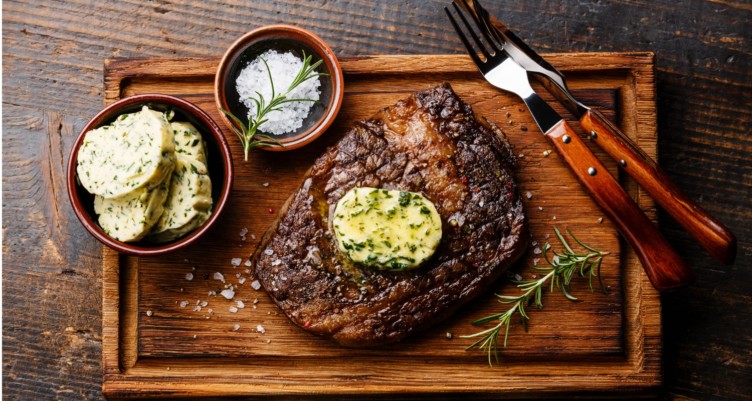Beginner’s Guide to Intuitive Eating: How to Trust Your Body and Feel Better

- Intuitive eating helps you reconnect with your body’s hunger and fullness cues.
- You can support long-term health without counting calories or following strict rules.
- Letting go of food guilt makes it easier to eat in a way that feels good both physically and mentally.
Intuitive eating is a way to connect with your body—not control it. Instead of counting calories or tracking every bite, you focus on how food makes you feel. This approach helps support your energy, mood and long-term health.[1]
Strict diets can add stress. That stress can backfire and make healthy habits harder to maintain.[2] Intuitive eating helps you tune in to your hunger and fullness cues, so you eat in a way that feels right for you.
In this guide, you’ll learn how intuitive eating works and how it can support both your physical and mental well-being.
What Is Intuitive Eating

Intuitive eating is about how you feel, not just what’s on your plate. It helps you let go of food guilt and ditch strict rules that don’t work long term.[3]
Instead of counting every calorie or sticking to a rigid meal plan, you learn to notice when you’re hungry, eat what supports your energy and mood and stop when you’re full. You choose foods that help you feel your best, but you don’t stress over occasional treats.
This approach takes practice. But over time, it can help you build trust with your body and make food choices that feel clear, calm and right for you.
A Beginner’s Guide to Intuitive Eating

Here’s a good starting point for intuitive eating without feeling overwhelmed —start with focusing on how you feel rather than the number on the scale.
Focus on How You Feel, Not Your Weight

Your weight can shift for many reasons. A salty meal may cause temporary water retention, or lack of sleep could make you feel a bit off. Building muscle can also change how your body feels, even if the number on the scale stays the same.
Instead of focusing on weight, shift your attention to how the food makes you feel. When you eat foods that make you feel energized and satisfied, your body is more likely to function at its best.
With intuitive eating, you tune in to what feels right for you. This helps you naturally stop eating when you’re full, without needing to track or count anything. You’ll be more in tune with your body’s needs and it’ll support you in feeling your best—physically and mentally.
Next up, let’s talk about how eating can come with a lot of complicated feelings—like guilt, pressure or second-guessing your choices.
Stop Feeling Guilty About the Food You Eat

Food isn’t just fuel—it’s comfort, culture and connection. But for many people, eating comes with a side of guilt. Maybe you’ve labeled certain foods as “bad” or felt like you’ve failed for eating dessert. That pressure builds up, and over time, it can turn eating into a source of stress instead of nourishment.
You don’t need to eat perfectly to feel your best. Trying to cut out certain foods forever can leave you feeling deprived or tense. That mindset often backfires and leads to all-or-nothing thinking—where one indulgence feels like you’re on the wrong track.
Instead, aim for flexibility. Most of the time, choose foods that leave you feeling energized, clear-headed and satisfied. And when you eat something just because you enjoy it, let yourself enjoy it. No guilt. No second-guessing.
Letting go of shame doesn’t mean letting go of intention. It means giving yourself permission to be human. When food becomes less about judgment and more about how you feel, eating well starts to feel easier—and a lot more natural.
Tune Into Your Body’s Cues

Your body sends signals all the time—like hunger, fullness, cravings and energy dips. Intuitive eating means paying attention to those signals without judgment.
Before you eat, ask yourself how you feel. Are you truly hungry, or are you bored, stressed or tired? Emotional eating—especially stress eating—is common. When life feels overwhelming, food can offer quick comfort. But that comfort often fades fast and can leave you feeling worse.
Tuning in helps you break that cycle. When you pause before eating, you give yourself space to figure out what you actually need. Sometimes it’s a meal. Other times, it’s rest, connection or a break from your screen.
The more you notice what your body’s telling you, the easier it becomes to make choices that support your physical and mental well-being. Like any skill, it gets clearer with time and practice.
Final Thoughts
Intuitive eating isn’t about following strict rules—it’s about listening to your body and making choices that support your wellbeing. When you stop obsessing over numbers and start tuning into your needs, eating becomes more natural, less stressful and a lot more enjoyable.
Remember: there’s no “perfect” way to eat. Every meal is a chance to check in with yourself, build trust and feel a little more grounded in your body.
You already have the tools—it’s time to start listening.
Sign up for early access to sales, product launches, the latest Bulletproof news and more!
This article has been updated with new content.



